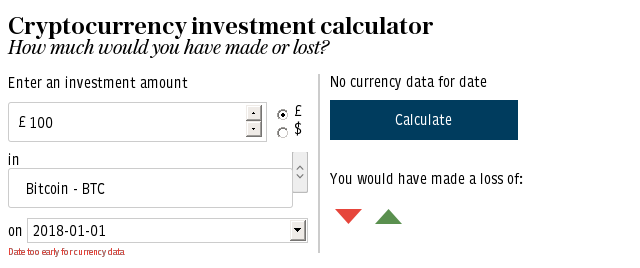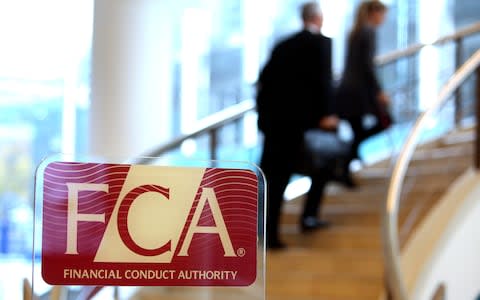Cryptocurrency bonanza raises questions for investors and regulators

At a recent conference on blockchain technology in London, a panel discussion about initial coin offerings (ICOs) was drawing to a close. As the audience began to digest what they had heard about the flood of money making its way to companies that were creating and selling their own cryptocurrencies or digital tokens to fund projects, a woman raised her hand.
She refused to give her name, but claimed to have worked in investment banking during the dotcom bubble. “I remember feeling quite nauseous bringing some of those companies to market,” she said. “This is a thousand times worse. I think people here are wilfully blind about what’s going to happen.”
On Thursday, Baroness Mone and her businessman boyfriend Doug Barrowman launched the public ICO of their own digital token. The move allows anyone with $100 (£71.62) to join investors who secured access to an earlier discounted “pre-sale” by committing $100,000 or more.
Mone, who made her name as the entrepreneur behind bra brand Ultimo, hopes to raise $75m from the process before inviting holders of “Equi Coin” tokens to back early-stage companies through an online platform that provides access to venture capital-style investments.

The project has brought the controversial subject of ICOs to the wider public’s attention, but it is dwarfed by another ongoing token sale. Telegram, a messaging platform similar to Facebook’s Whatsapp, is reportedly on its way to raising as much as $2.55bn in a three-stage ICO that has so far only been open to institutional investors via a secretive pre-sale.
Money from big-name Silicon Valley venture capitalists will be combined with cash from a public stage of the ICO, which is slated for June. This would make it comfortably the largest ICO in history and furnish Telegram’s Dubai-based Russian founder Pavel Durov with a war chest to fund his plans to expand the messaging platform by adding digital wallets, cloud storage services, an applications platform and a payments channel claimed to be capable of processing millions of transactions per second.
Beyond these two examples, ICOs are booming. They were used to raise $5.6bn in 2017, according to a report from Fabric Ventures and Token Data. And they have surpassed conventional equity funding as a source of capital for blockchain start-ups, according to data compiled by CB Insights.
“A lot of people are sitting around with capital that has been created somewhat easily from the crypto boom,” says Michael Jackson, the former chief operating officer of Skype, who is now a partner at tech venture capitalist (VC) firm Mangrove Capital Partners. These people, Jackson says, “are willing to put [their money] into projects that they think are cool” by investing in ICOs.
“The long-term side of it is a lot more interesting, though. Companies have found a mechanism where they’re able to raise funds without going through traditional finance like banks or VCs such as ours.”

This new set-up, whereby firms lay out their ideas online and let investors of all stripes come to them, has its advantages. VC funding can be “a bit random,” says Jackson, since it hinges on meeting the right people at the right time. With ICOs, “it becomes a lot more transparent. Your information becomes available for everybody to look at.”
What’s more, investors in ICOs often get instantaneous liquidity, since they’re able to sell their digital coins or tokens on exchanges almost as soon as they’ve bought them. Investors in more traditional structures have to wait until a company has been acquired or goes public, which is likely to take years – if it happens at all.
That doesn’t mean that ICOs are a funding panacea. In January a company called Prodeum set out to raise around $6.5m to create a database of fruit and vegetables using the Ethereum blockchain. Just four days later, it had disappeared, leaving behind a scaled-back version of its website that merely displayed the word “penis”.
OneCoin, a blockchain start-up from Mumbai, is thought to have operated as a Ponzi scheme that funnelled $350m through Germany. Analysis published by Ernst & Young earlier this year suggested that 10pc of all funds raised through ICOs were lost or stolen as regulators struggle to police this new frontier.
“There are blatant scams, pump-and-dumps, misinformation and a lack of disclosure of conflicts of interest,” says Dr Garrick Hileman, a research associate at the University of Cambridge who is running a $25m ICO in his capacity as co-founder of blockchain start-up Mosaic. “But it is quite possible that this is a new channel that is going to be with us for some time.” That’s exciting, he says, because investing in early-stage technology companies “is something that’s been traditionally reserved for millionaires and billionaires. Now the little guy is getting a crack”.

Mosaic plans to use a digital token to reward high-quality blockchain research. People who want to view the research will have to pay to access it using the same currency. However, he admits that, for the time being, the “spray and pray” approach to investing that became popular in the dotcom boom may not be such a bad idea. Indeed, a report released in October by Mangrove found that indiscriminately investing in every ICO would have generated a 1,320pc return – even taking into account the significant number that failed.
Nevertheless, efforts are being made to sort the wheat from the chaff. Patrick Lowry heads up Iconiq Labs, a German ICO “accelerator programme” that sources, funds and develops blockchain start-ups that meet its criteria and pass due diligence checks.
“We put a high emphasis on only bringing in companies that truly require a token within their business model framework,” says Lowry, who is critical of companies that use ICOs to raise money for projects that could be executed without blockchain technology.
“There’s an asset-backed token model for bananas in Laos. They call it Bananacoin. You essentially own pieces of the plantation and are able to get revenue from the bananas that are theoretically generated on the land that you are supposed to believe that you own. It’s utterly insane.”
The way in which ICOs are regulated – or not – has caused some confusion. In America, the SEC announced in July last year that it considers coins issued by some ICOs to be securities, and therefore out of bounds to US retail investors. But the UK’s FCA has been less active.

William Garner at law firm Charles Russell Speechlys says: “The FCA is in a difficult position, as are some other regulators, in terms of striking the right balance between, on the one hand, consumer protection, and on the other hand, not being seen to be a regulator that stifles technological innovation and market innovation.”
Garner says he would be “amazed” if in future “ICO issues in this country don’t effectively become regulated”. But what about comparisons to the dotcom bubble?
If it is a bubble, then at least it’s smaller than the one we saw at the turn of the century, says Igor Erker of digital assets advisory firm Columbus Capital. Erker points out that today’s crypto market is worth around $500bn; much less than the roughly $6 trillion value of the Nasdaq in 2000. “And, although the average crypto investor is a retail investor in absolute terms, they understand and accept the volatility of the market on a completely different level than a pension retail investor in 2000 did.”
Nevertheless, a major “market correction” is around the corner, says Laszlo Giricz, a cryptocurrency expert. “But it’s not going to destroy the space. It’s going to be a really positive change. I strongly believe that 70 or 80pc of the market doesn’t have any place in the blockchain space. [The coins and companies] that have been set up with the pure goal of making money will disappear.”
The ones that survive, says Giricz, will be those that “actually address real-world challenges.”

 Yahoo Finance
Yahoo Finance 